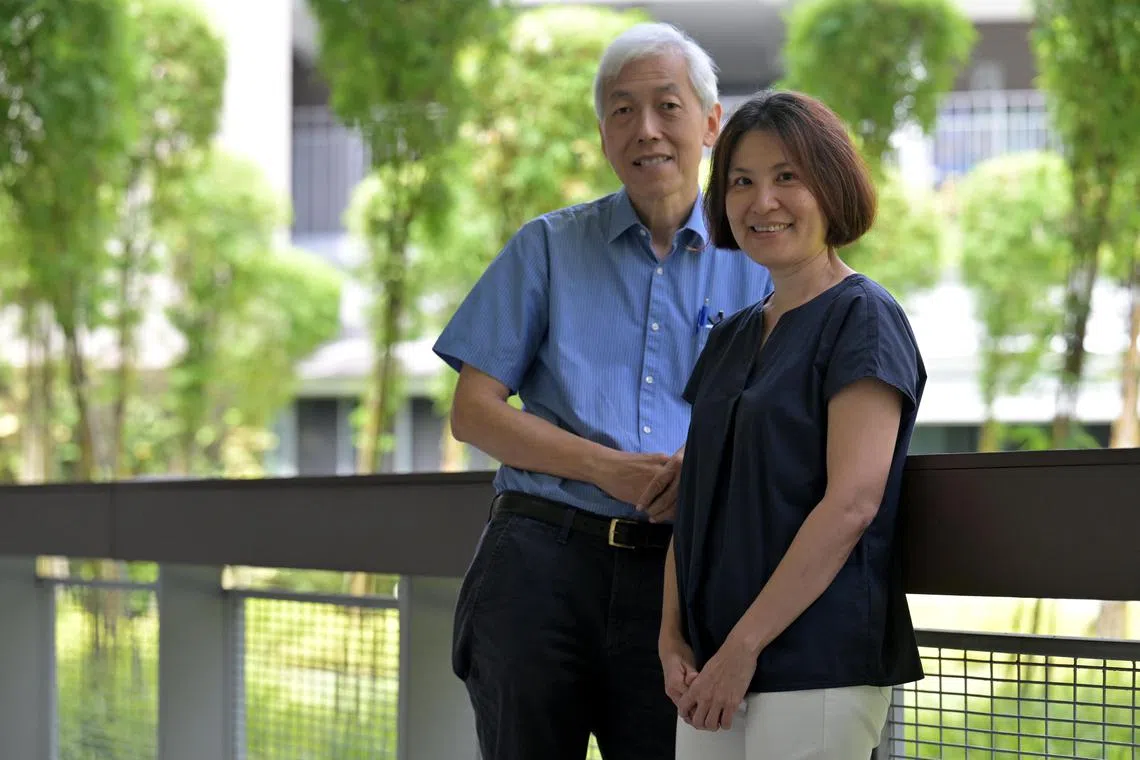Online guide to help parents plan for their autistic children’s future to be launched in end-2025
Sign up now: Get ST's newsletters delivered to your inbox

The guide is the brainchild of Ms Denise Phua, the president of the Autism Resource Centre (Singapore) and the chairman of Autism Association (Singapore).
PHOTO: ST FILE
SINGAPORE – What will happen to my child when I die?
This question nags at Ms Sun Meilan, 51, constantly. But the mother of an 18-year-old son with autism has her hands full with daily duties as a full-time caregiver, and rarely has the time to make plans for the future.
Many caregivers such as herself face this problem, she said. “The uncertainty of where and whom to entrust our child to, amid inadequate adult services and limited support, leaves families stuck.”
Parents like Ms Sun will soon be able to look for answers in an online guide, which aims to help caregivers plan for their child’s future after a parent’s death.
The guide includes topics such as financial, health and housing matters, as well as caregiving options, and was put together by Autism Network Singapore (ANS), an alliance of five social agencies.

Mr Ho Wan Weng, 62, and Ms Sun Meilan, 51, say that the new guide will be useful for parents like themselves, who have children with autism, to plan for their future.
ST PHOTO: DESMOND FOO
Titled Life After Death, it will be released online at the end of 2025.
The guide was developed by a team of parents and caregivers of those with autism, as well as autism professionals and volunteers, said ANS in a press statement on March 27.
It takes caregivers through essential steps such as listing their child’s interests, needs, housing plans and support network for future caregivers to refer to.
The guide also includes templates to record financial information such as bank accounts, life insurance and trust accounts in their child’s name, as well as health records.
Caregivers will also be prompted to be financially prepared by writing a will, making a CPF nomination and a lasting power of attorney.
Draft versions were reviewed by professionals such as lawyers and financial consultants, and have been trialled with more than 20 parents and caregivers in workshops.

The guide takes caregivers through five key modules to help them plan for the future of their children with autism.
ST PHOTO: DESMOND FOO
A member of ANS, Autism Resource Centre (Singapore) plans to run workshops to take caregivers through the playbook later from mid-2025. Interested caregivers may learn more or indicate their interest to participate at www.autism.org.sg/forms/lad-workshop-2025
The guide is the brainchild of Ms Denise Phua, the president of the Autism Resource Centre (Singapore) and the chairwoman of Autism Association (Singapore).
Ms Phua, who has a son with autism, said the guide was created to empower and encourage parents and caregivers to start planning and take action.
“It is a call to action for families, professionals and the wider community to come together to ensure that individuals on the autism spectrum continue to flourish and lead quality lives beyond their caregivers’ lifetime,” said Ms Phua, who is also the mayor of the Central Singapore District.
The caregiving guide is a key recommendation from the Autism Enabling Masterplan, launched in 2021 by ANS to guide Singapore’s efforts to address key needs of individuals across the spectrum.
Ms Phua told The Straits Times that the new guide tackles the specific need of looking after the long-term well-being of individuals with autism.
“We know that for specific disability groups, we need to have specific measures and programmes... and that is how we support the national Enabling Masterplan,” she added.
Mr Bernard Chew, chief executive of St Andrew’s Autism Centre, said that all members of the public have a shared responsibility to support caregivers.
“More must be done to recognise and alleviate their sometimes silent burden – through respite, emotional support and long-term planning,” said Mr Chew, who asked for workplace flexibility and greater societal understanding.
Mr Ho Wan Weng, 62, who has a 26-year-old son with autism, said the initial stages of planning for the future of children with autism can be overwhelming.
Said the retired green roof specialist: “If you ask me how to plan for the future, it’s a very big question. How do I even start to do that?
“But this tool helps you look at life and compartmentalise it into small modules... so things are achievable, less threatening, and parents feel less frightened about the future.”


